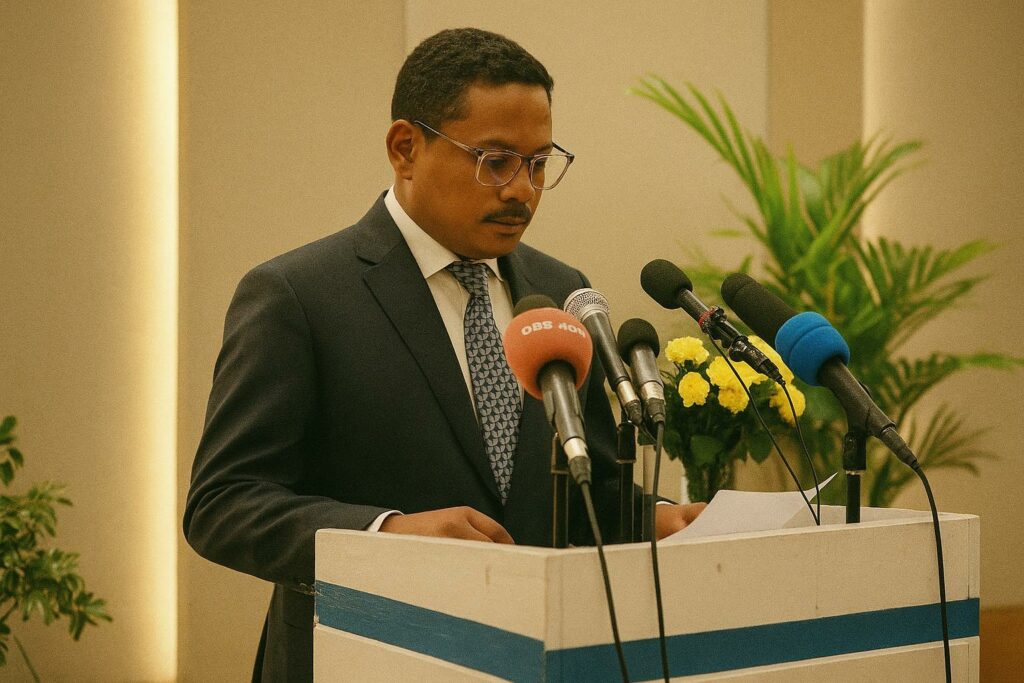UN Signals Imperative of a Pragmatic Regulatory Architecture
The marble halls of the ministère congolais des Postes, des Télécommunications et de l’Économie numérique resonated this week with an appeal that was both urgent and cautiously optimistic. “We must build a digital-transformation trajectory that strengthens cybersecurity, respects user privacy and protects critical infrastructure,” insisted Abdourahamane Diallo, the United Nations Resident Coordinator in the Republic of Congo, at the official launch of the thirteenth Central African Cyber Drill. His intervention, though couched in the precise language of diplomacy, underlined a reality that global indices corroborate: Africa’s cyberspace is expanding at a pace that challenges the region’s regulatory reflexes. The International Telecommunication Union’s 2021 Global Cybersecurity Index shows that only a handful of continental states score above the world average in legal, technical and organisational measures, placing collective cyber preparedness squarely on the political agenda.
Regional Cyber Drill as Catalyst for Cooperative Defense
Brazzaville’s decision to convene experts from national computer emergency response teams, telecom regulators and defence attachés is more than an exercise in scenario-planning. It is a diplomatic signal that Central Africa intends to speak in unison when facing transnational malware campaigns and ransomware outbreaks that disregard borders. According to Interpol’s 2022 African Cyberthreat Assessment Report, the continent endured more than 200 million threat detections in a single year, with Central African states recording a surge in phishing and business-email compromise. In this context, the Cyber Drill becomes a policy laboratory where incident-response protocols are stress-tested and information-sharing channels are hardened. The coordinator’s emphasis on “collective defence” echoes the African Union’s Malabo Convention, whose principles the Congo ratified in 2019, pledging timely exchange of threat intelligence and uniform certification standards.
Balancing Privacy, Innovation and Critical Infrastructure Protection
The technical debate, however, is inseparable from the normative dilemma: how to secure networks without stifling the very innovation that underpins the digital economy. Congo’s revised Data Protection Act, adopted last year, embodies this balancing act, stipulating stringent breach-notification rules while exempting certain categories of anonymised research data to keep academic and fintech experimentation unhindered. Experts from the Economic Commission for Africa, interviewed on the margins of the Drill, argued that such calibrated legislation can become a template for neighbouring jurisdictions still drafting their first cyber statutes. They noted that the cost of non-compliance can be prohibitive: IBM’s 2023 Cost of a Data Breach Report places the average African incident at 3.7 million dollars, a figure that can erode fragile fiscal buffers and deter foreign investors.
Private Sector Leverage and the Economics of Trust
Diallo’s remarks also pointed toward the private sector as an indispensable ally. With mobile-money transactions exceeding 700 million dollars annually in Congo-Brazzaville according to the World Bank’s Digital Economy Diagnostic, any disruption could reverberate through households and public-finance planning alike. The resident coordinator therefore advocated “solid partnerships between governments and technology providers” that combine capital expenditure with threat-intelligence feeds. Local banks and telecom operators, for their part, quietly acknowledge that sharing incident data with regulators remains culturally difficult. Nevertheless, discussions are underway for a trusted-services framework enabling anonymised reporting, an approach that Ghana’s National Cyber Security Authority has recently adopted with tangible gains in early warning times. If finalised, Congo’s version could inject a new layer of confidence into cross-border mobile payments that knit the sub-region’s economies together.
Congo’s Diplomatic Posture in the Continental Cyber Agenda
Beyond the technical annexes and keynote speeches lies an evolving diplomatic equation. President Denis Sassou Nguesso’s administration, mindful of its chairmanship of the Economic Community of Central African States last year, has framed cybersecurity as a public good analogous to health security or environmental stewardship. The Foreign Ministry recently designated a cyber envoy tasked with coordinating positions at the United Nations Open-Ended Working Group on ICTs, signalling that Brazzaville intends to influence norms-setting debates rather than merely adapt to them. Analysts at the Institute for Security Studies in Pretoria note that smaller states often accrue disproportionate soft-power dividends when they champion niche issues such as responsible state behaviour in cyberspace. For Congo, this posture dovetails with its broader ambition to present itself as a facilitator of regional stability.
Brazzaville’s Next Steps toward a Secure Digital Marketplace
The road ahead is strewn with both promise and complexity. Cloud-first procurement guidelines, currently in draft form, aim to move key government workloads to sovereign data centres that meet ISO 27001 standards. Meanwhile, the Ministry of Higher Education has begun integrating certified ethical-hacking modules into university curricula, hoping to cultivate a domestic talent pipeline that negates the brain-drain risk flagged by the African Development Bank. Observers caution that capacity-building alone will not suffice unless accompanied by sustained budgetary allocations for continuous monitoring and incident-response drills. Nevertheless, the very act of convening the Cyber Drill, and doing so under the auspices of the United Nations, illustrates that Congo-Brazzaville is prepared to place cybersecurity at the core of its development doctrine, not as an afterthought but as an enabling layer for e-government services, telemedicine and cross-border e-commerce.

